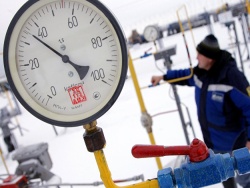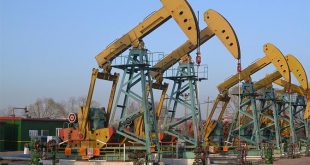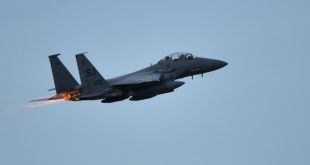
Despite the pessimistic estimates, and difficult political relations of Moscow with the leading countries-the oil producers in the Arab world, Russia made an important step in the effort to stabilize the oil market and oil prices on raw materials.
As reported by the information Agency, February 16, at the talks in the Qatari capital Doha with the participation of the head of the Ministry of energy of Russia Alexander Novak, Minister of oil of Saudi Arabia Ali al-Naimi, Minister of national control over the oil industry and mineral resources of Venezuela, Eulogio del Pino and the oil Minister of Qatar Mohammed bin Saleh al-the Garden has been agreed to freeze oil production at the level of 11 January 2016.
This is not a final decision because the parties to the agreement understand that without the involvement of other major oil producers, their restraint is unlikely to seriously reduce the current surplus of oil on the world market, which is estimated 2 million barrels./day. The very next day after the Doha meeting, the representatives of Iran and Iraq announced that their countries do not see the option to join the agreement. This means that both Iran and Iraq will attempt to recover its share of the oil market at any prices for oil.
As for Russia, the budget of which 40% is generated from oil and gas revenues, for her to decide to reduce production in the conditions of the existing financial and economic difficulties, very difficult. However in the Russian government consider that the additional agreements with oil companies to stabilize the oil production would be required. “We in General to all plans the production was expected to remain at a stable level. Some fields have cut production, some increase. For us was not too difficult for such obligations to take on,” said Deputy Prime Minister Arkady Dvorkovich, who oversees the fuel and energy complex.
In 2015, Russia was the leader in oil production in the world (10,91 MB/day when 10,04 million barrels./day Saudi Arabia), but gradually revealed itself, the lack of investment and the Western sanctions can lead to a natural decline in Russian oil production without any administrative measures.
An even stronger downward pressure on production will have a tax regulation of the government in case they will be introduced. The Ministry of Finance announced plans to reduce the oil price at which oil companies of the Russian Federation do not pay the production tax, from the current $15 per barrel to $7.5 per barrel. This of course will lead to a significant replenishment of the budget, but at the same time will cause a serious decline in the level of production. In any case, oil companies will have to abandon the development of low yield and other heavy in the development of the fields. Yes and to start new development in such conditions is risky enough.
Probably, hence the confidence in the government’s ability to restrain production without any extraordinary measures, and the determination to influence prices towards their increase. Otherwise the industry will suffer very substantial damage. Talking about this data and the presentation of the stress scenario in the energy strategy of Russia until 2035, announced by the Minister of energy Alexander Novak at the meeting of the government Commission on the fuel and energy sector on February 17. According to the newspaper “Vedomosti”, the stress scenario considers an option in which the price of oil will be at $31-33/bbl. in 2016-2017, and by 2020 will grow to $42/bbl. Oil production may decline to 460 million tonnes per year in 2020-2025, with subsequent slight growth of about 14% compared to 2015.
Despite the political significance of the quadripartite agreement, we are still talking about a very small limiting the production. According to analysts, a significant reduction in Saudi Arabia, Russia and other countries could turn against them. Still the collapse of oil prices is slowly but surely led to the decline of the shale industry in the United States. American companies increasingly declare bankruptcy and stop drilling rigs. Up to 74% of North American oil producers are experiencing serious difficulties in servicing their debt, says Moody’s Investors Service.
Shale gas production will resume growth if the oil price will rise to $50 per barrel, said in an interview with Bloomberg, the head of Vitol Group BV Ian Taylor before reports of Saudi-Russian talks. “It is obvious that large volumes of oil in the coming year will not be extracted just because it’s not profitable, but some of this oil may return to the market”, – said the head of the largest oil trader in the world. If there are four of thousands of wells drilled, production may start at higher prices, the us shale industry is able to win back the lost positions.
Thus, extremely complex, ambiguous, but at the same time interrelated processes happening now in the oil market, is not yet possible to predict the success or failure of the Doha agreement and attempts to affect oil prices at all. As, however, no one has been able to correctly predict the price of oil for several months, not to mention years. However, an important step in the effort to stabilize oil prices made.
Concern development dynamics of the oil market are Russia, Saudi Arabia, Venezuela and Qatar, agreed on 16 February in Doha on the freezing of its oil production. Recently, the Xinhua news Agency reported that the second-ranking Chinese oil company “Sinopec” covers four areas of production at one of China’s largest deposits of “Shengli” (Victory) in the East. The company motivates its decision by the desire to stop the fall in oil prices.







